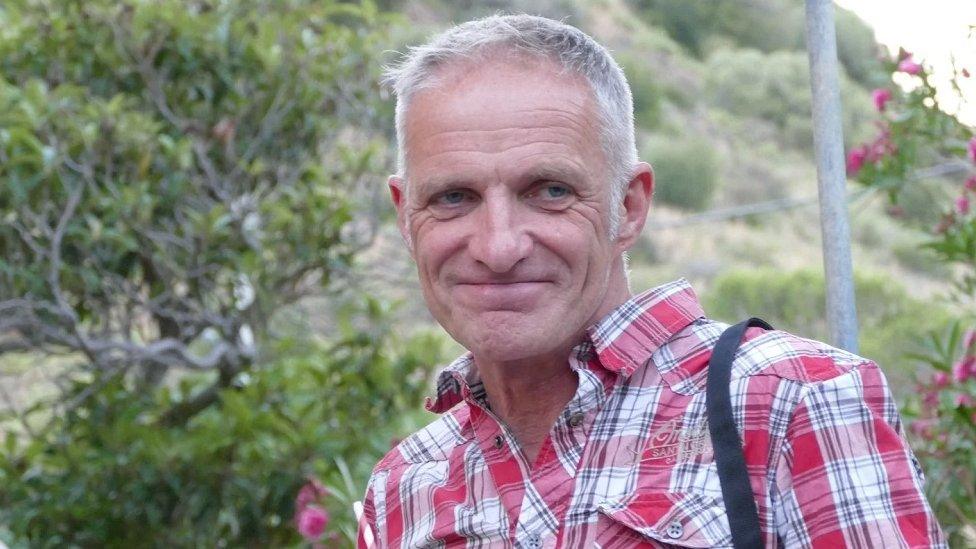Bernard Phelan: Irishman sentenced to six-and-a-half years in Iran prison
- Published

Bernard Phelan has been imprisoned in Iran since October 2022
A man from the Republic of Ireland who has been detained in Iran since October has been sentenced to six-and-a-half years in prison, his family have said.
Bernard Phelan, 64, is originally from Clonmel, County Tipperary, but grew up in Blackrock, County Dublin.
He has been accused of "providing information to an enemy country", a charge he denies.
As a dual-citizen, Mr Phelan was travelling on a French passport at the time of his arrest.
Mr Phelan has hypertensive heart disease and chronic bone and eyesight issues but Iranian authorities have refused to release him on humanitarian grounds.
His family have recorded a YouTube video, campaigning for his release, with his 97-year-old father, Vincent, stating that he is worried he will never see his son again.
Allow YouTube content?
This article contains content provided by Google YouTube. We ask for your permission before anything is loaded, as they may be using cookies and other technologies. You may want to read Google’s cookie policy, external and privacy policy, external before accepting. To view this content choose ‘accept and continue’.

'Bag over the head'
The Paris-based travel consultant had been visiting the country since 2017, promoting Iran as a tourist destination.
Mr Phelan was arrested on 3 October in the north-eastern city of Mashad during a wave of anti-government protests that have seen millions take to the streets.
He was detained for allegedly taking photographs of police officers and a mosque that had been burned.
His sister, Caroline Massé-Phelan, told Irish broadcaster RTÉ that her brother was in "the wrong place at the wrong time".
"He was hauled off the road, bag over his head," Ms Massé-Phelan said.
Conditions inside the prison are said to be cramped, with 16 people sharing a cell amid freezing night-time temperatures.
It is understood some of those in Mr Phelan's cell block have been executed.
'Bargaining chips'
Iran is holding at least 17 Western nationals, many with dual-citizenship.
In January, French government officials issued a statement confirming that Mr Phelan was one of seven French nationals currently held in Iran.
Supporters of those detained say foreign nationals are being used by Tehran as "bargaining chips" for negotiations.
"He was a European, let's use him for whatever we want from Europe," Ms Massé-Phelan added.
Watch: The protests in Iran have their roots in changes made after the 1979 revolution
'Time is running out'
Mr Phelan had previously gone on a food and water strike in protest at his arrest sparking international concern for his case.
Ireland's Tánaiste (deputy prime minister) and Minister for Foreign Affairs, Micheál Martin, previously said Mr Phelan should be released as quickly as possible.
Mr Martin has also confirmed that he was holding talks with Iranian officials.
Speaking on RTE's Morning Ireland, Ms Massé-Phelan said: "We have appreciated all of the help that the Irish government has given us, but they need to push this further. Bernard is ailing now and he's on death watch. Time is running out."
She urged authorities to shelve potential plans for the opening of an Irish embassy in Iran.
"We would say how can we normalise any communication with Iran while they have locked up an innocent Irish citizen in one of their prisons."
The Republic of Ireland's Department of Foreign Affairs said it is extremely concerned by the case and has been providing consular assistance, in close coordination with France, since the outset.
- Published17 January 2023
